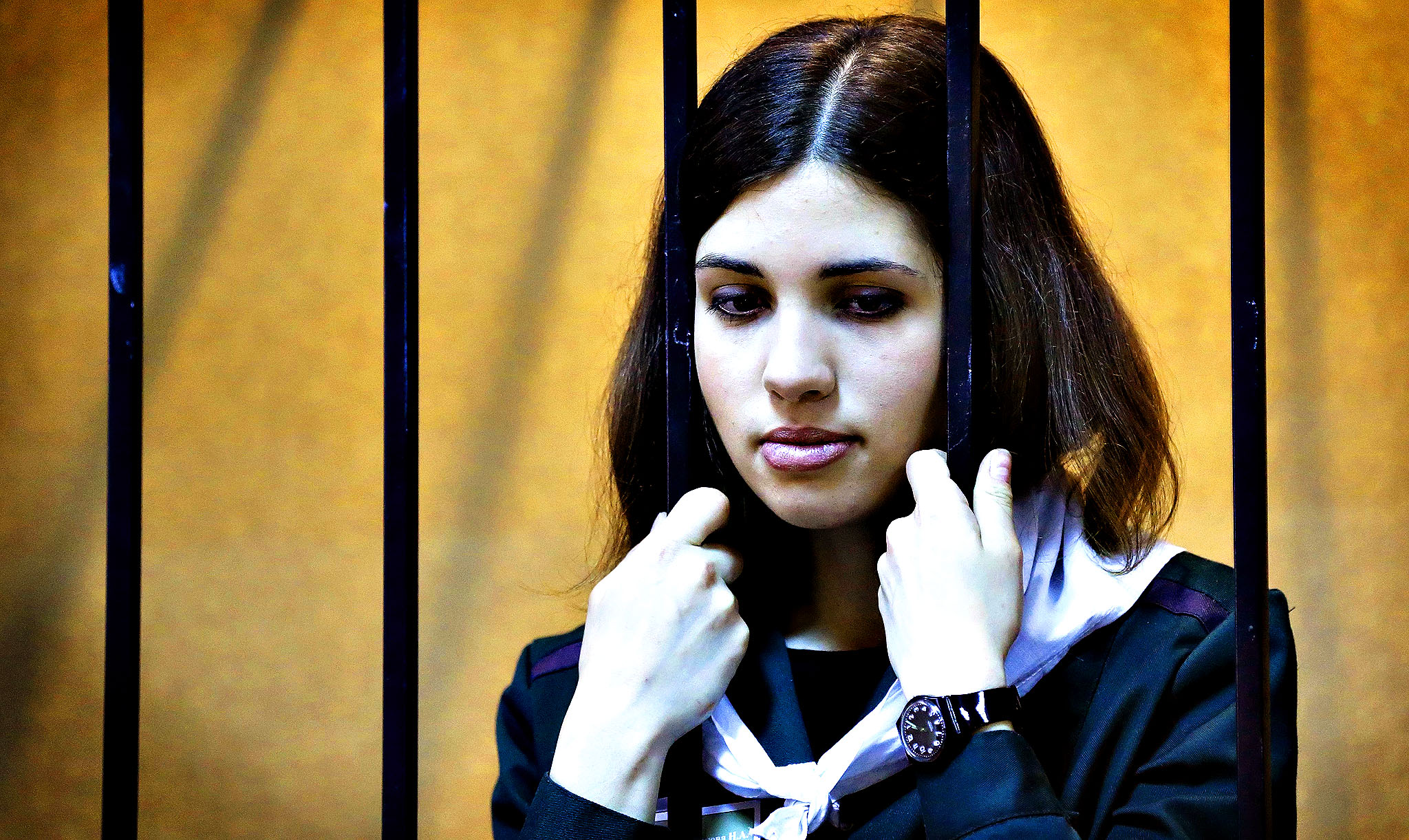
BY CAROLINE WRAY:
She’s an Amnesty International prisoner of consciousness, a leftist political activist, member of the punk rock feminist protest group “Pussy Riot,” and, currently, a huge pain in the Putin administration’s ass.
Nadezhda Tolokonnikova, along with two of her bandmates, was imprisoned in March 2012 on convictions of “hooliganism motivated by religious hatred” after they performed illegally (an anti-Putinist group, Pussy Riot always performs illegally, due to the principle that organizing a protest under Putin’s government would diminish its threat level) in a priests-only section of Moscow’s Cathedral of Christ the Savior.
And in 2012, the case garnered a fair amount of attention from the West, disturbed by the harsh reaction of Russian courts (“hooliganism?” what is this, A Clockwork Orange?). But—very generally speaking—the Eastern reaction seemed to be more that the admittedly riotous group had it coming to them. This exemplifies beautifully a major disparity between the East and West; most Russians are conservative, Russian Orthodox Christians, and while the separation of church and state is integrated into, say, American philosophy, the Russian outlook is quite different.
This was all a year and a half ago, and now, Pussy Riot is making international news once again. Tolokonnikova began a hunger strike on September 23 and ended it nine days later, on Tuesday, October 1, when she was moved to a prison hospital and had her condition stabilized. She’s insisted that she will resume it, however, if her demands—a full inspection of conditions in Women’s Prison Colony Number 14 and full protection for all inmates who give testimony, and a prison transfer unless the deputy prison governor, Yury Kuprianov, is prosecuted— aren’t met.

Tolokonnikova has brought international attention to what does indeed appear to be absolutely appalling conditions for female prisoners. The presidential human rights council has confirmed, for example, Tolokonnikova’s claim that prisoners are working 12 to 16 hour days. In her letter, Tolokonnikova describes horrors such as an elderly prisoner was forced to stay outside and endured such severe frostbite that the prison authorities had to amputate her fingers and one foot. She also described that a unit of seamstresses “who couldn’t keep up were undressed and forced to sew naked.”
She said the severe sleep-deprivation leads to mental illness: one woman, she claimed, tried to cut her own stomach open with a hacksaw before guards stopped her.
It seems that Tolokonnikova has enough fame and enough endurance to, perhaps, make real change: it is undeniable that the Russian government would like to get her name back out of international headlines.
Caroline Wray ‘17 is in Jonathan Edwards College. She is a Globalist Notebook blogger on Russia. Contact her at caroline.wray@yale.edu.